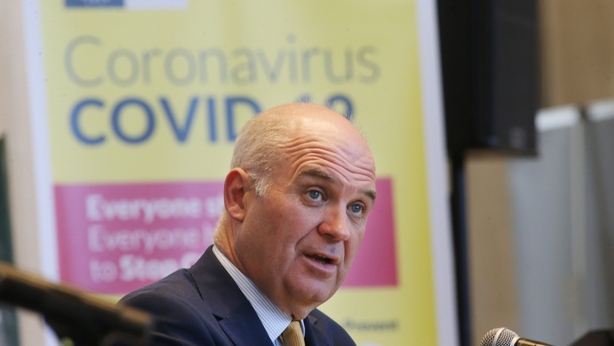From social distancing, to business closures, to when schools should be allowed to reopen again. The big decisions that are impacting on all of our lives are being guided by a committee of experts that has been advising the political decision makers through every step as they navigate this unfolding crisis.
The National Public Health Emergency Team (NPHET) was convened at the end of January - before the virus had hit our shores - and as such was the first pre-emptive step in ensuring a co-ordinated response.
Since then it has grown from around a dozen or so members to something closer to 40 today. The weight it carries in the overall decision making process has altered too.
A general election has taken place since it was set up and the changed political landscape has resulted in a Government without a majority in need of cross party consensus for any major decisions it takes. The role of officials has been key to the broad political support for the measures taken.
NPHET is chaired by the Chief Medical Officer Dr Tony Holohan and holds a couple of meetings a week as well as meeting of its eight sub groups.

It is tasked, among other things, with monitoring the spread of the virus including the number of deaths and the numbers that are hospitalised and such data as how many are in residential care settings and how many patients are treated in ICU. It also tracks the availability and rate of testing. It assesses the national and international data and gives expert advice and guidance to the government on the overall response that is needed.
Despite the scale of its deliberations and the significance of the decisions it makes, all of these meetings are held behind closed doors. Unlike other public or state appointed boards, it does not routinely publish minutes of its meetings. The last minutes available are for the end of March.
This has led to concerns around transparency and accountability, especially at a time when the normal oversight structures of the Oireachtas have been suspended and the normal checks that the Dáil can keep on the Government - such as parliamentary questions and questions to ministers - are not in place.
Labour Party leader Alan Kelly has said that although his party totally supports the work of NPHET and its advice "we have to see transparency around decision making, we need to see transparency around how people are appointed, how minutes are taken or indeed not taken, their role in relation to their interactions with the HSE".
He said: "In particular we need to see how the advice of NPHET is constituted and passed on to the democratic decision making by the Government."
The Department of Health issued a report last night outlining the governance structure around NPHET. It gives details of its members and a breakdown of its eight sub committees, which are broken down into such groups as "Behavioural change sub group" and "acute hospital preparedness sub group" as well as "healthcare workforce sub group".
"While political decision makers have largely deferred to the experts since the start of the crisis they are not necessarily obliged to"
The report says that following each meeting, the recommendations of NPHET are communicated by letter to the Minister for Health for consideration and "these recommendations are used to assist Government in informing its decisions in responding to the public health emergency".
The relevant decisions arising from the meetings are also communicated to HSE Chief Executive Paul Reid on the day of the meetings.
The report states that "actions and recommendations" of the group are announced through press releases and its members are involved in daily press briefings.
It says the NPHET secretariat is "working diligently to finalise the minutes of the meetings as quickly as possible after the meetings, bearing in mind the pace of the current pandemic" but does not say when we can expect to see those minutes published.
While political decision makers have largely deferred to these experts since the start of the crisis - and Ministers have made a virtue of doing so - they are not necessarily obliged to.
Cabinet is the ultimate decision making body and it is the role of the Oireachtas to hold the Executive to account.
As economic, social and political considerations arise, it is likely that the Cabinet will seek some rebalancing of decision making process.
The mix of opinions given at yesterday's Cabinet meeting was the first sign that the advice of scientists will at some point have to be weighed up with other concerns of those who will ultimately be held accountable for how the crisis is handled.






